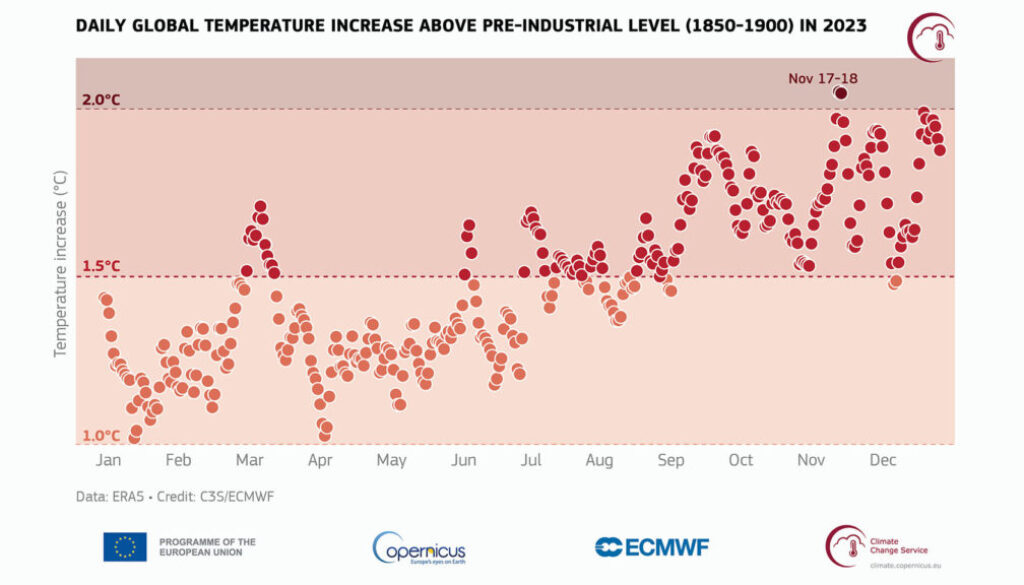2023 almost broke 1.5°C
From Copernicus European Space Agency Climate Change Service; read the full report here.
Global surface air temperature highlights:
- 2023 is confirmed as the warmest calendar year in global temperature data records going back to 1850
- 2023 had a global average temperature of 14.98°C, 0.17°C higher than the previous highest annual value in 2016
- 2023 was 0.60°C warmer than the 1991-2020 average and 1.48°C warmer than the 1850-1900 pre-industrial level
- It is likely that a 12-month period ending in January or February 2024 will exceed 1.5°C above the pre-industrial level
- 2023 marks the first time on record that every day within a year has exceeded 1°C above the 1850-1900 pre-industrial level. Close to 50% of days were more than 1.5°C warmer then the 1850-1900 level, and two days in November were, for the first time, more than 2°C warmer.
- Annual average air temperatures were the warmest on record, or close to the warmest, over sizeable parts of all ocean basins and all continents except Australia
- Each month from June to December in 2023 was warmer than the corresponding month in any previous year
- July and August 2023 were the warmest two months on record. Boreal summer (June-August) was also the warmest season on record
- September 2023 was the month with a temperature deviation above the 1991–2020 average larger than any month in the ERA5 dataset
- December 2023 was the warmest December on record globally, with an average temperature of 13.51°C, 0.85°C above the 1991-2020 average and 1.78°C above the 1850-1900 level for the month. You can access information specific for December 2023 in our monthly bulletin




